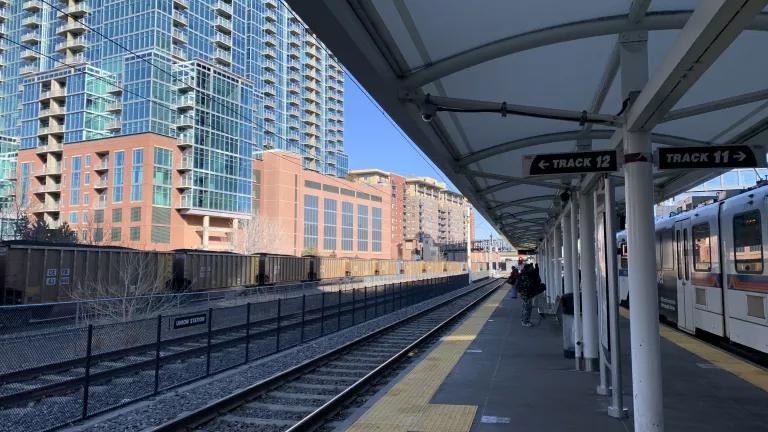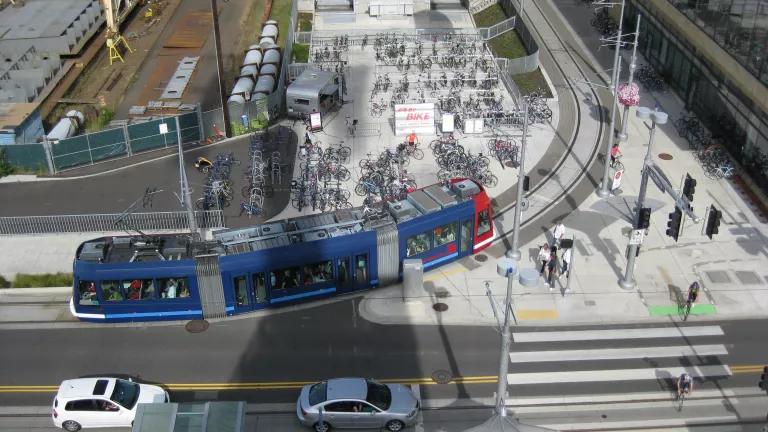Over the past few years, Washington, D.C. has stepped into the climate leadership spotlight by passing legislation like the D.C. Clean Energy Omnibus Act and setting goals through the Sustainable DC plan to increase low-carbon commutes to at least 75 percent of trips.
As one of the cities in the American Cities Climate Challenge, NRDC is thrilled to see D.C. taking these actions, and we know that D.C. residents are inclined to make climate friendly choices too. One of the most impactful carbon reduction choices an individual can make is how they get around, and D.C. residents when given the choice are much more likely than folks in other parts of the country to bike, walk or take transit. Based on data from the American Communities Survey, 76.5 percent of Americans drove alone to work in 2017, compared to only 35 percent of D.C. residents.
That is why we are excited to see the D.C. Council consider the Transportation Benefits Equity Amendment Act. This proposed legislation provides more options for D.C. workers by making sure that commuter benefits don’t favor cars over other options. Currently, many employers provide commuter benefits for driving and parking that are worth much more than benefits for transit, biking or walking. This bill will require employers that subsidize employee parking to offer a transit benefit of equal value or provide a cash pay-out.
In addition to giving D.C. residents more flexibility in their commutes, this bill also incentivizes low-carbon transportation options. Think about it—if you received cash for your commute instead of a parking spot, you would be more inclined to split your commute by taking transit, biking or walking on the days that work for you, and driving only when necessary.
People take advantage of this flexibility. When a similar policy was enacted in California, research showed it decreased solo driving, the majority source of our economy’s transportation emissions, by 17 percent. Instead of using that new flexible money on driving and parking, people found cheaper and cleaner alternatives: carpooling increased by 64 percent, transit ridership increased by 50 percent, walking and bicycling increased by 33 percent, and employer parking demand fell by 11 percent.
Together, this led to a 12 percent reduction in vehicle miles traveled and vehicle emissions, meaning less congestion for all commuters and cleaner air for everyone in the community.
The Transportation Benefits Equity Amendment Act is a win-win for D.C. residents, it means more flexible commuting options and better environmental and climate outcomes for our region.



